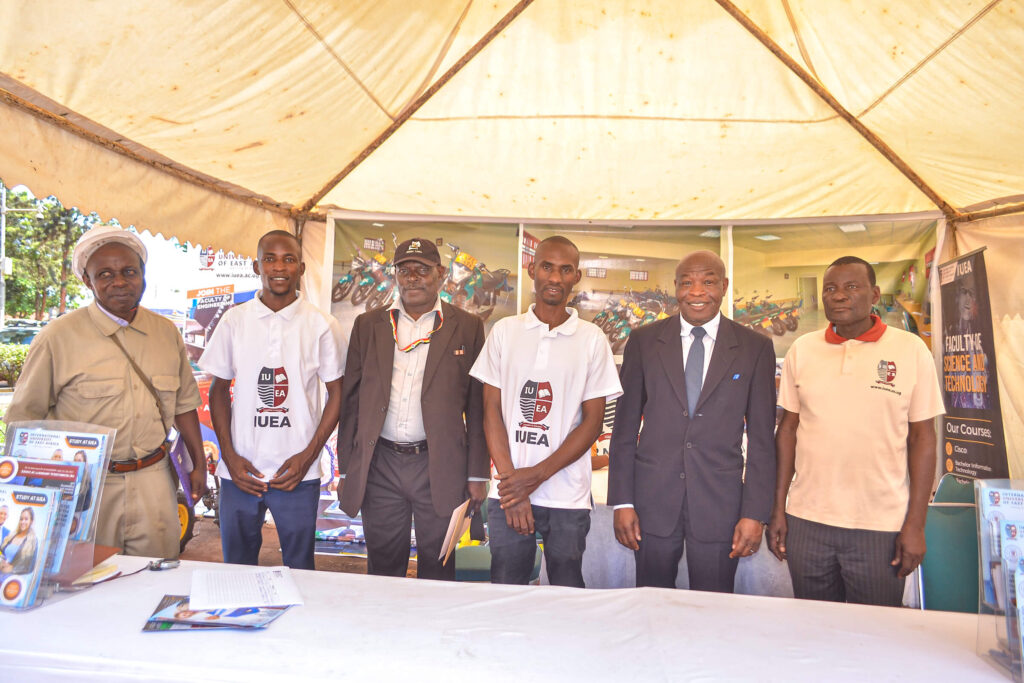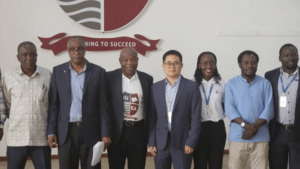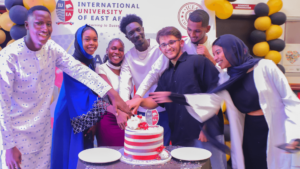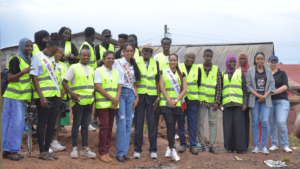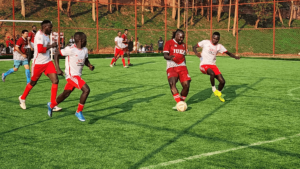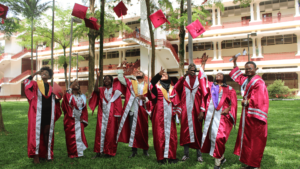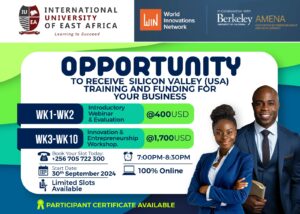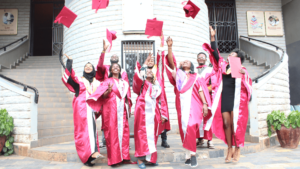The 2nd East Africa Food Security Symposium and Expo, a collaborative effort between the International University of East Africa (IUEA), Climate Change Africa East Africa (CCAEA), and Aquafina, among other partners, recently took place at Makerere University Business School (MUBS) in Uganda. IUEA was honoured to host the very first symposium. The Second Food Security & Climate Change Symposium & Expo was focused on on addressing the pressing issue of climate change’s impact on food security and food systems in the East African region. Attendees were taught how they can ensure food security and combat climate change all while making some money. How is this possible, you ask? Let’s discuss.
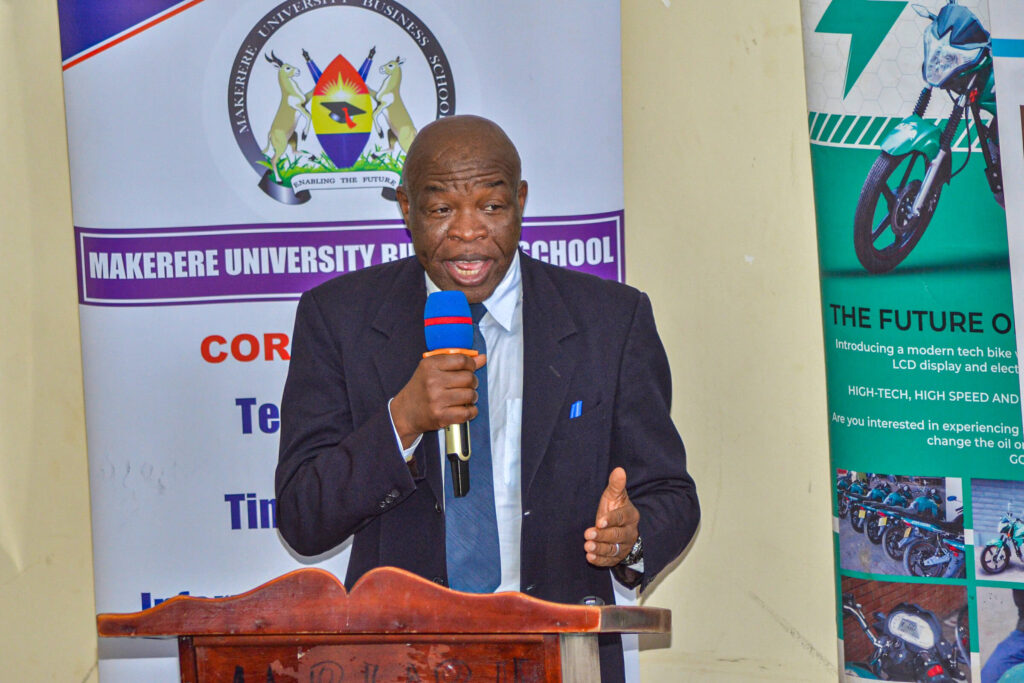
Why should you care about food security?
We cannot claim to be happy because of Human Rights when people are suffering.
– Said Prof. Christopher Wagima, IUEA Professor, Faculty of Business and Management
Food security, a basic human need, is defined as the availability of enough safe and nutritious food to meet the needs and preferences for an active and healthy life. However, 900 million people worldwide, including many in Africa, are suffering due to severe food insecurity and many of them are children. Because of this, achieving food security ranks second in the United Nations’ Sustainable Development Goals (SDGs) and fifth in the Africa Agenda 2063.
Food shortages are increasing around the world due to unfavourable weather conditions resulting from Climate Change. Uganda, which many call Africa’s breadbasket, still faces challenges in eliminating hunger because of droughts and floods. The symposium was important because it helped raise awareness among Ugandans and East Africans on how to combat the growing starvation crisis.
Nature is claiming its space and we pretend like we have not seen.
– Said The Minister General Duties in the office of the Prime Minister, Justine Kasule Lumumba.
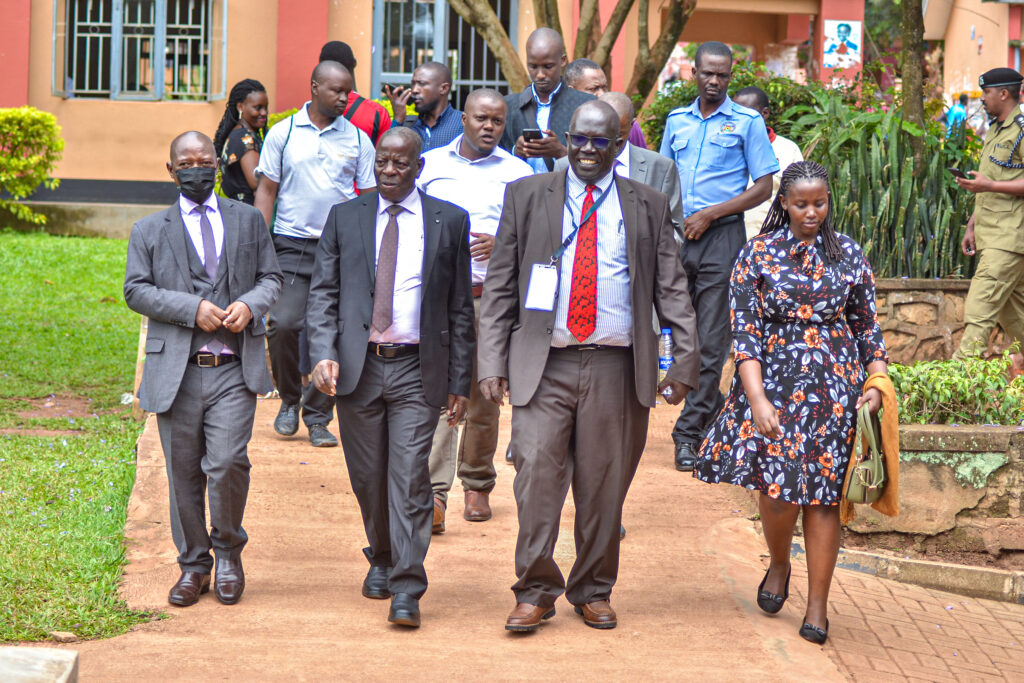
Is there an easy way to achieve food security, make money and protect the environment?
We were able to estimate that on one acre, assuming each chicken lays eight eggs with any extra being the risk factor, we calculated that you should be able to get 426 million shillings in 3 years and if you have 20 chickens, then you double that.
– Said Dr. Tom Okia Okurut, the Executive Director, Climate Change Action East Africa (CCAEA) while discussing the profitability of the One Acre Model.
This symposium introduced a simple and practical method to achieve food security known as the “One Acre Model.” This model involves dividing a one-acre plot of land into three sections: one for firewood trees, one for fruit-bearing trees (for food), and one for ordinary trees (for different purposes, like making wood for electric poles).
The farmer can introduce chickens into the trees, starting with one cock and 10 chickens and plant small crops that can create food for the Chickens. Chickens were chosen because they mature quickly, providing a source of food while the trees grow.
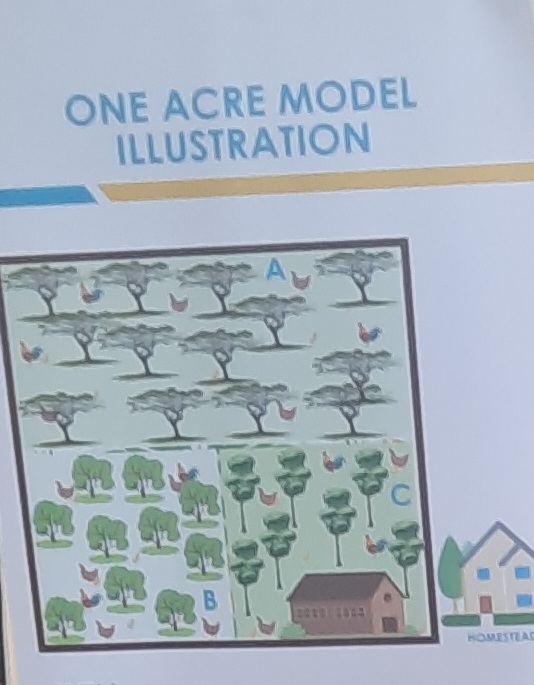
How does the One Acre Model combat climate change?
The One Acre Model contributes to climate change reduction through the creation of a microclimate, where the climate within a smaller area differs from the larger surrounding region. To establish a microclimate, a minimum of 10 people in an area need to adopt the One Acre Model, as was explained by the CCAEA.
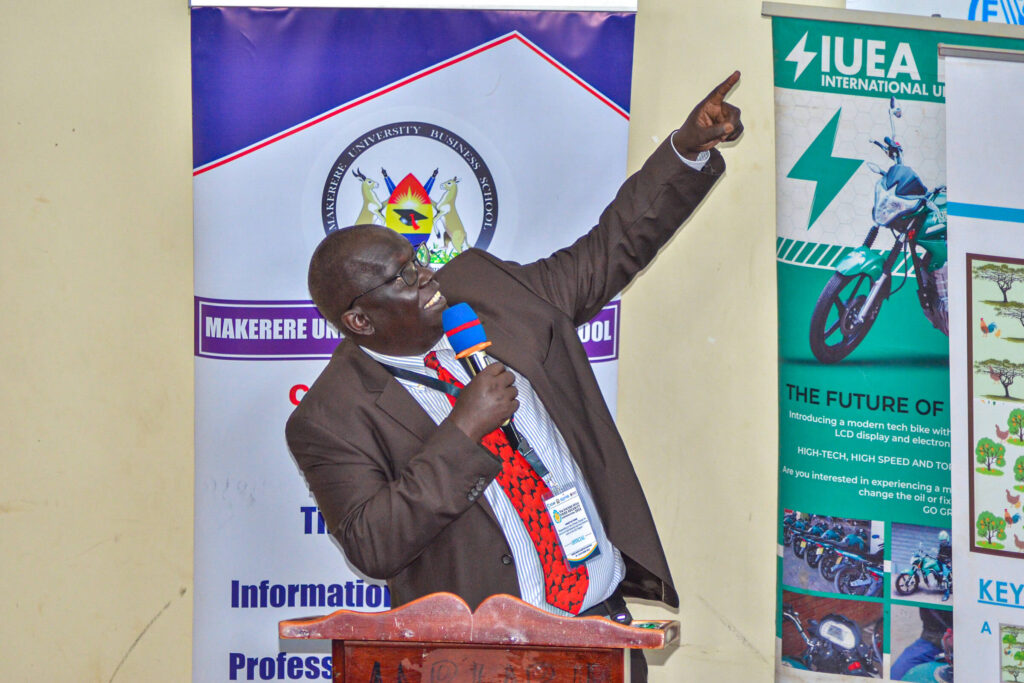
Do you need to have a degree to implement the One Acre Model?
We educate so that you get employed but also so that you can employ yourself
– Said Prof. Stephen K. Nkundabanyanga, a Professor of Accounting, Finance and Governance at Makerere University Business School.
While this model is designed to be accessible to those with a basic knowledge of agriculture, having additional knowledge can be advantageous. Prof. Stephen emphasised that studying subjects like accounting can help you better manage the farm, track earnings from each tree or asset, and prevent potential losses while improving income.
At IUEA, we have an internationally accredited Business Administration degree that includes accounting at Diploma, Bachelor and Master levels. In addition, we are gearing up to introduce a Bachelor of Science in Agricultural Science programme. You can click here to join our upcoming intake.
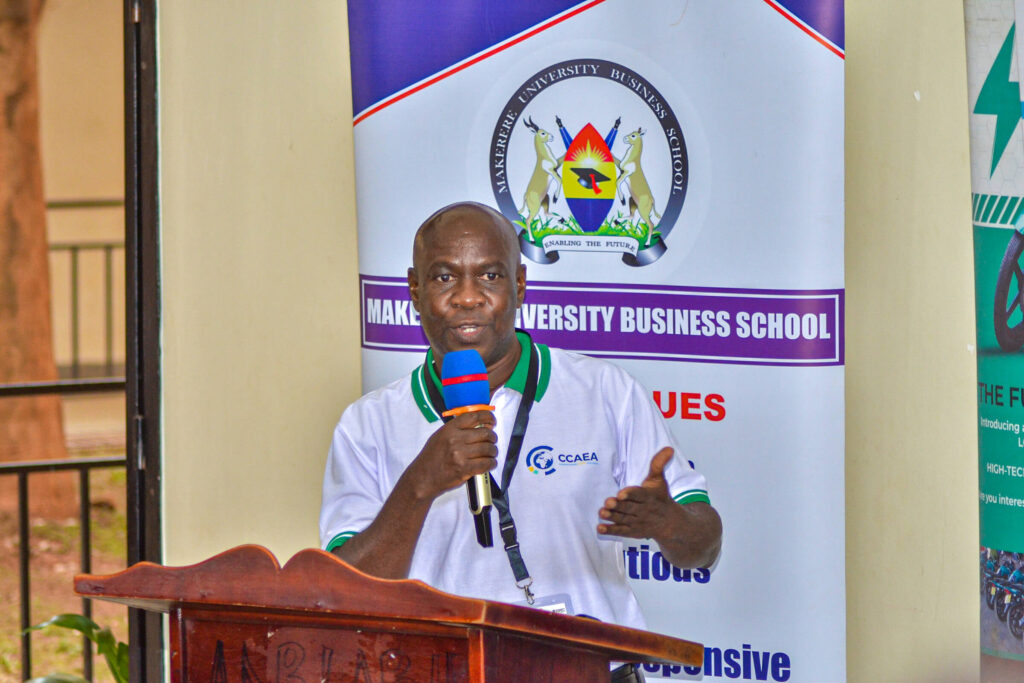
How did IUEA contribute to the symposium?
You have seen what the International University of East Africa has done. Where is your stall?
– Said Proscovia Vikman, Ambassador for Climate Africa Network Uganda as she used IUEA as an exemplary institution that MUBs should imitate.
IUEA played a significant role in the symposium, not only as a partner but also by showcasing its high-tech electric bike, electric tractor, and Agri-fintech initiative, eSusfarm, which was a champion at this year’s AgriHack competition. It was a perfect illustration of IUEA’s dedication to environmental conservation in addition to its partnership with NEMA.
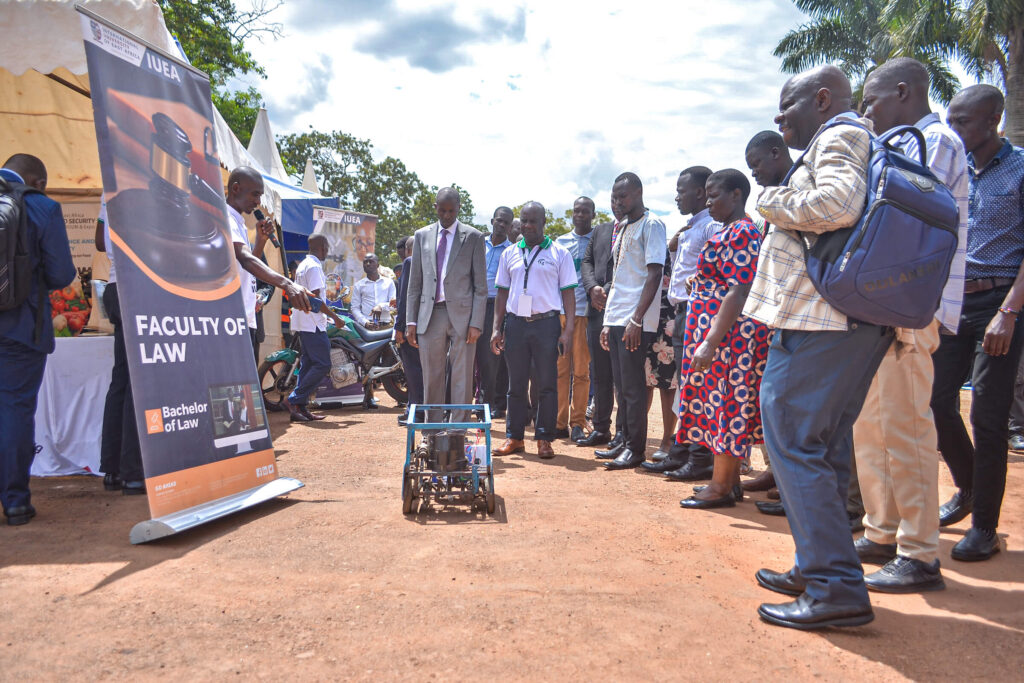
Why not use Genetically Modified Organisms (GMOs) to improve food security in Uganda?
While GMOs are widely used in developed countries to increase food production, Uganda’s laws do not have a provision to facilitate their introduction due to the controversy surrounding their use. CCAEA is planning to hold a debate to help Ugandans learn more about GMOs.
I would like to take this opportunity to thank you in a special way for scoring in most of the SDG’s; no poverty, no hunger and a good environment. You are scoring in all of those up to the seventeenth one of forming partnerships.
– Said The Minister General Duties in the office of the Prime Minister, Justine Kasule Lumumba.
Madam Justine Kasule Lumumba’s commendation underscored the success of the event by highlighting how the CCAEA’s practical solution dealt with the existent threats to the wellbeing of humanity as outlined in the UN’s SDGs. The one acre model combats climate change while providing a source of biomass, enables the average citizen to earn a decent income and provides a good source of nutrition. This model therefore holds immense potential as a foundation for achieving sustainable food security in Uganda and East Africa.
You are the best messengers to carry the message of climate change and its mitigation ways to the communities… It is for your own good because which world will your children find and which world will your grandchildren find?
– Said The Minister General Duties in the office of the Prime Minister, Justine Kasule Lumumba.
